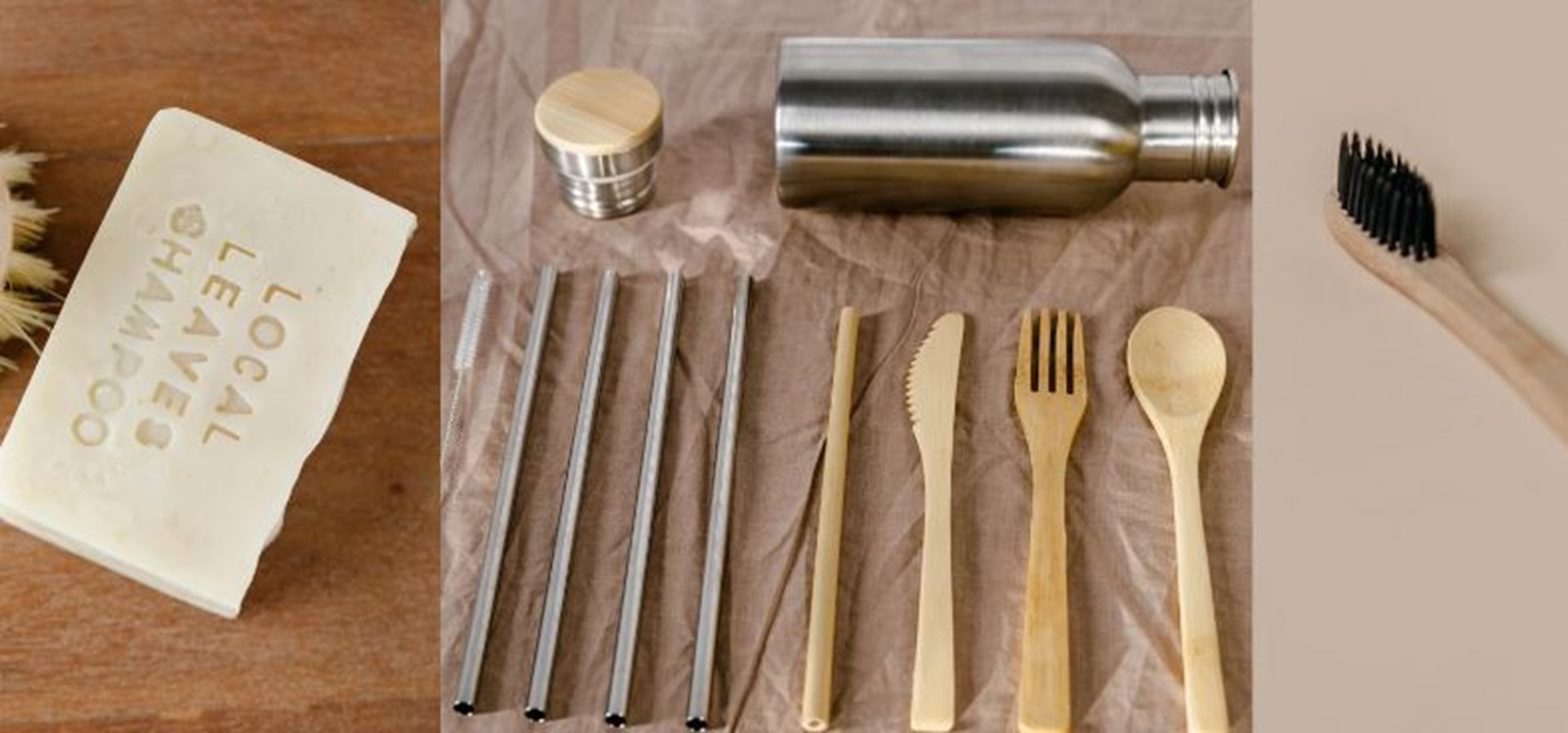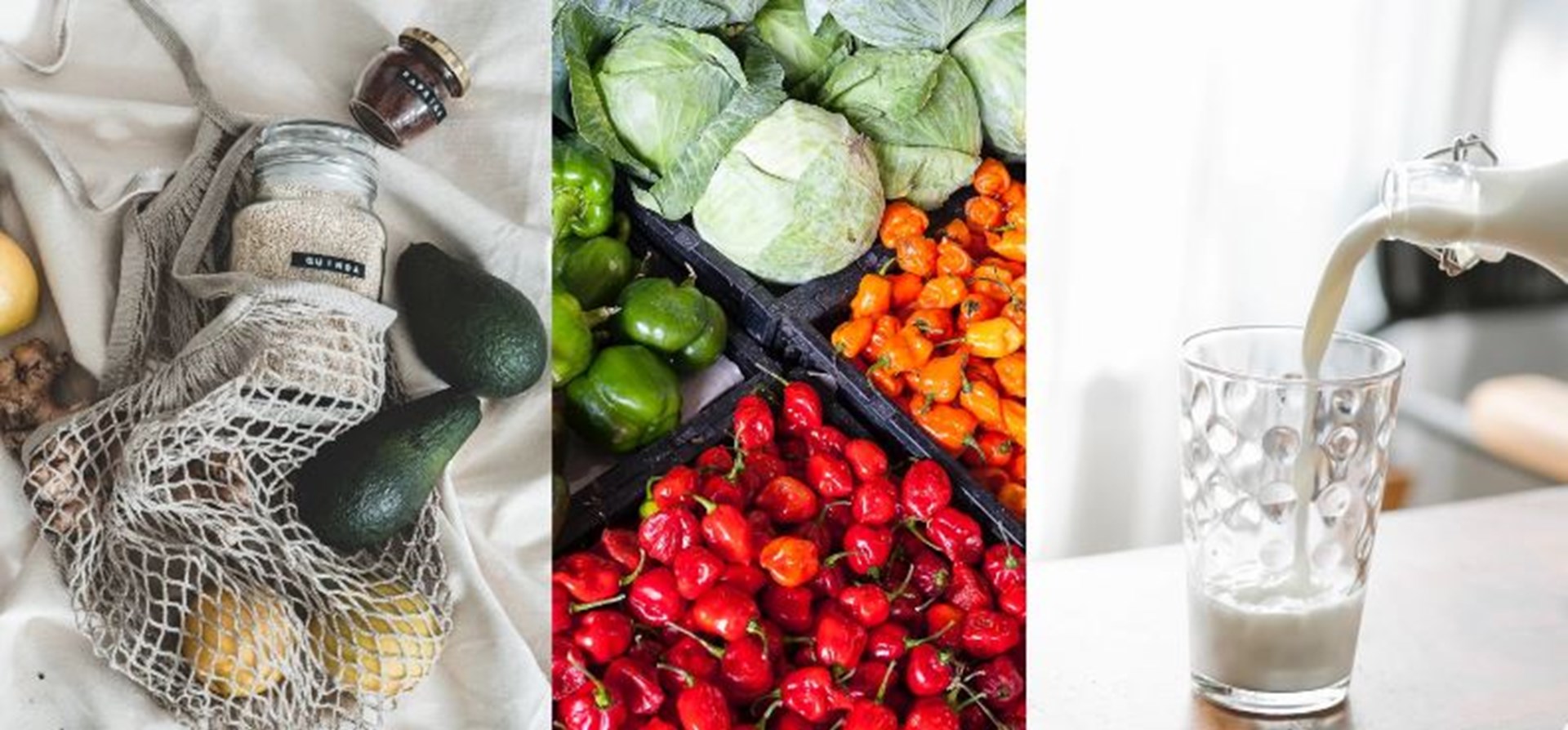It’s thought that, by 2050, there could be more plastic in our oceans than fish. Single-use plastic is just about everywhere you look. Whether you're buying a sandwich, some loo roll or a toothbrush, you're probably buying plastic that you'll end up chucking in the bin.
Here are some key stats that show how serious the plastic pollution problem is:
- Around eight million pieces of plastic pollution enter our oceans every single day.
- 33% of plastic is used once. It can't biodegrade and ends up in our oceans where it breaks down into smaller pieces, eventually becoming microplastics. There could be as many as 51 trillion microplastic particles in our oceans.
- A plastic bottle can last 450 years in our oceans – it will eventually become microscopic, but it will never go away.
- One in three fish caught in the UK are thought to contain plastic – so not only are our fish ingesting these microplastics, we likely are too.
Since the 5p carrier bag charge was introduced, the UK has used nine billion fewer carrier bags, showing just how much of an impact a small change can have if everyone gets on board.
So, here are some of the best and most cost-effective ways to reduce your plastic consumption.
Toiletries
- Use an eco-friendly shampoo bar - To go zero waste on a budget, one of the best ways to start is by getting shampoo bars instead of bottles of shampoo. Shampoo bars can be free from plastic packaging, they last longer and they're easy to use. Ideal all round! It's worth trying a shampoo bar from an independent seller on Etsy. Or, if you'd rather stick with a big-brand name, you could buy a shampoo bar from Lush – they have loads to choose from so you can get one which matches your hair type.
- Replace face wipes with a face cloth - Face wipes might be convenient but they're really bad for the environment and expensive. They're single-use and come in plastic packaging. Plus, it's actually generally thought that they're not as effective at cleaning your skin as regular face wash and water. You can buy a couple of washable cloths for your face and another two or three for your body. That way, you'll still have fresh, clean ones while the other ones are in the wash.
- Buy sustainable bars of soaps - It might seem a tad old fashioned to use a bar of soap instead of a pump but, again, it'll last much longer, and it gets a wash after each use (unlike a plastic soap dispenser). Just make sure to find a bar that doesn't come wrapped in plastic. Again, you could look on sites like Etsy for independent soap sellers who use sustainable packaging.
- Use a wooden toothbrush - Wooden toothbrushes aren't to everyone's tastes (literally), but they're much more eco-friendly than regular plastic toothbrushes. Brushes from Save Some Green have handles made from (panda-friendly, sustainable) bamboo, and the bristles are BPA-free biodegradable nylon 4 (meaning they are plastic, but they will degrade), and they're also infused with bamboo.
- Use deodorant bars - Like with the other plastic-free toiletry bars on this list, you can get deodorant bars from Etsy and Lush. Although they might take a little while to get used to, they're more environmentally-friendly than using a plastic roll-on or spray can. They last ages too – keeping your bar wrapped in paper will help to preserve its scent.
- Buy plastic-free makeup - It can be quite difficult to go plastic-free with makeup when all the major cosmetics brands use plastic, but there are alternatives out there. You might not get quite the same level of quality that you might with bigger brands, but you'll get that extra glow knowing that you're saving the planet. We've got loads of tips on how to save money and recycle your makeup – including the Back to Mac scheme, which rewards you with a free lipstick for returning your packaging.
- Get paper-wrapped toilet roll - To save money while still at least cutting down on plastic, you could mix it up with your usual loo roll and buy a box of paper-wrapped rolls every now and then. Once you're finished with it, why not sell your loo roll tubes on to make back some cash?

Food and drink
- Shop at local independent stores - For food without plastic packaging, it's much better to shop at places like butchers, delis, grocers and markets, rather than mainstream supermarkets. For fruit and veg, in particular, you should be able to find them for pretty good prices on grocery stalls in a local market, free from plastic.
- Check food packaging labels carefully - If you do ever need to buy something that has plastic packaging, you can cut down on plastic wastage by making sure the packaging's recyclable before getting it. You'll be surprised to find some food products aren't recyclable at all, while others are that you wouldn't expect. For example, things like cling film and many food and drink pouches can't be recycled, whereas breakfast cereal liners and frozen food bags can.
- Buy loose fruit and veg, not pre-packaged - As well as helping you cut out plastic, buying loose fruit and vegetables will help you save money (and prevent food waste) in the long-run. There's also no need to put your veg in the little plastic bags they have in shops – you'd need to wash them before eating them anyway, so it's really not worth the extra packaging.
- Buy frozen meat and fish - Most fresh and raw meat comes wrapped in plastic, but the freezer aisle is your friend when you're aiming to become plastic-free. Frozen fish fillets and chicken steaks often come in cardboard boxes, but annoyingly it tends to be breaded foods that come completely plastic-free (which aren't the healthiest options).
- Say no to disposable straws and cutlery - Disposable plastic cutlery and straws are among the worst plastic pollution culprits. Just like plastic bags and bottles, single-use utensils and straws are usually used just once, for a couple of minutes, before they are thrown away, and then they either litter our towns and countryside, pile up in landfill, or enter our waterways and oceans. However, it’s actually really easy to get in the habit of carrying your own cutlery with you, and leave a set in the car.
- Store leftovers in glass jars - Plastic containers are not always the best option to use to store our food due to the risk of toxins leaching into it, especially when the food is either hot, or frozen. Glass is a very safe food storage option, and we have recently discovered that instead of sending our glass jars to be recycled, we can easily re-purpose them for all sorts of uses including: storing leftovers in the fridge, freezing cooked or uncooked food, storing any dry goods in our cupboards, as take-out containers, and for bringing our lunch to work, or on our travels.
- Replace plastic-packaged food with tins - You can get so much food in the tin aisle. Canned foods have recyclable packaging and they tend to be very cheap at supermarkets.
- Use your own Tupperware - Any local butchers, grocers and delis (and some supermarkets) near you will likely allow you to take along your own Tupperware to transport food in, cutting out the need for extra plastic packaging. Tupperware is useful for when you need an airtight container for food, but you want to avoid single-use plastic.
- Find a local milk delivery service - As more people move to cut down on plastic, milk delivery services are becoming increasingly popular again. They allow you to get your milk delivered in glass bottles to your home. You then leave the empty bottles on your doorstep to be collected and reused – completely zero-waste! Some services even offer orange juice too.
- Buy cereal in plastic-free packaging - It can be difficult to find breakfast options that aren't packaged in plastic but if you do some extra digging, you'll find some.
- Get a reusable shopping bag - It sounds like an obvious one, but you'd be surprised how many people don't do this already. You can buy a reusable bag that folds up really small for a few quid, and it'll save you paying 5p for a plastic bag every time. For a no-plastic shopping bag, have a look at Etsy where you should be able to find plenty of reusable fabric ones from independent sellers.
- Cut out chewing gum - Did you know chewing gum is actually made from plastic? This means that once you ditch it, it won't degrade – hence why you see so many lining pavements.
- Try natural beeswax coated cloth wraps instead of plastic cling film - Check out the various kinds of beeswax-coated cloth wraps you can buy to substitute for plastic wrap.
- Buy a stainless steel water bottle - Of course, plastic reusable water bottles are also an option here, but the plastic can go a bit funny after a few months and make your water taste weird, so we'd recommend stainless steel bottles for longevity. Plus, you'll save money in the long run by cutting out those random bottles of water you buy when you're out and about. Some places offer free water refills in-store when you have a reusable bottle. Equally, it's a great idea to get a reusable cup or flask for hot drinks, too – you can even get free hot drinks in some locations when you use a reusable cup.

Laundry and household
- Use laundry powder or detergent instead of capsules - To avoid using plastic, avoid using the capsules that come sealed in plastic and opt for a good old-fashioned box of laundry powder instead (it's the cheapest option anyway). It's difficult to say whether bio or non-bio laundry powder is better for the environment – bio powders contain enzymes which can irritate sensitive skin, but when using non-bio, you'll usually have to wash your clothes at a higher temperature, which uses more energy.
- Clean with bicarbonate of soda - Bicarbonate of soda makes a great alternative to traditional cleaning sprays which come in plastic bottles.
- Use biodegradable bin bags - Bin bags may at first seem like a type of single-use plastic that's impossible to avoid, but you can actually get biodegradable bags that are eco-friendly, making your waste a little less wasteful.
- Recycle or compost food waste to avoid plastic garbage bags (and keep organics out of the landfill) - This can solve several plastic problems. First, since wet stuff is no longer in the garbage, plastic garbage bags aren’t (necessarily) needed. Plus, the compost can be mixed with soil from the garden to be used for houseplants and avoid buying potting soil in plastic bags.